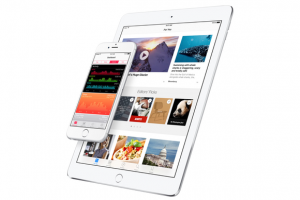Why you should download the new iOS 9.2.1 update ASAP
— January 21, 2016Apple released iOS 9.2.1 on Tuesday, but the update did not initially generate much attention. However, the importance of this update extends beyond the surface-level fixes typically associated with incremental iOS updates. While Apple’s official release notes focused on general improvements, the update also addressed critical security flaws that could compromise user privacy and device safety.
One particular fix stands out. Apple resolved a significant vulnerability that had persisted for nearly three years, impacting the security of users who connected to public Wi-Fi networks. This vulnerability was disclosed in 2013 but was only addressed with the release of iOS 9.2.1. Understanding the details of this security issue, how it worked, and why the fix was delayed is crucial for grasping the significance of the update.
Details of the Security Vulnerability
The vulnerability, reported on June 3, 2013, by Yair Amit and Adi Sharabani of Skycure, involved public Wi-Fi networks. Hackers could exploit this flaw by setting up a malicious public Wi-Fi hotspot. Once a user connected to the network, either intentionally or through automatic settings, the attacker could redirect the victim’s device to an unsecured HTTP website.
The attack became effective when the user’s device loaded a captive portal — the screen often displayed by public Wi-Fi networks asking for login credentials or terms of service agreement. In this case, hackers could embed malicious content within the captive portal, execute unauthorized code on the device, and gain access to sensitive information.
Such vulnerabilities are particularly dangerous in environments where public Wi-Fi is common, such as airports, hotels, and cafes. Hackers using this exploit could intercept private data, access user accounts, and compromise device functionality without the user noticing.
The Challenges Behind the Fix
Skycure acknowledged that this issue took longer to fix than most reported vulnerabilities. Unlike simpler bugs that can be resolved quickly, this flaw required Apple to implement fundamental changes in the way iOS handles captive portals and cookies. iOS 9.2.1 introduces an isolated cookie store for captive portals, separating the browsing session associated with public Wi-Fi logins from the user’s primary data and browser sessions.
The isolated cookie store prevents malicious code or unauthorized access from affecting other parts of the device. This solution significantly enhances security for iOS users who frequently connect to public Wi-Fi networks. Skycure noted that, despite the lengthy timeline for the fix, the resolution effectively neutralized the vulnerability.
Importance of Installing the Update
Users are strongly encouraged to download and install iOS 9.2.1 immediately. Neglecting to update leaves devices exposed to potential attacks through unsecured Wi-Fi networks. Even if you do not frequently connect to public Wi-Fi, the security patch represents a critical improvement in the overall safety and privacy of your device.
Updating to iOS 9.2.1 is simple. Open the Settings app on your iOS device, navigate to the Software Update section, and follow the prompts to install the update over the air. The process is quick and ensures your device is protected against the vulnerability.
Broader Implications for Security
This update underscores the importance of regular software updates, particularly for devices connected to the internet. Cybersecurity threats evolve constantly, and staying up to date with the latest fixes ensures your data remains protected. For Apple, the resolution of this issue highlights the complexity of addressing deep-rooted vulnerabilities, emphasizing their commitment to user security.
For businesses, especially those in web and mobile app development or software outsourcing firms like S3Corp, this serves as a reminder to prioritize security in their applications and services. Leveraging updated frameworks and secure practices ensures that products meet modern standards and protect end-users effectively.
Conclusion
The iOS 9.2.1 update may not have garnered significant attention, but its importance cannot be overstated. By addressing a long-standing security vulnerability, Apple has demonstrated the critical role of updates in maintaining device integrity and user trust. Users should act immediately to install the update, benefiting from enhanced protection against sophisticated attacks on public Wi-Fi networks.
In a digital world where security threats are constant, vigilance and timely action are key. Updating to iOS 9.2.1 is not just a routine task — it is an essential step in protecting your personal and professional data.





